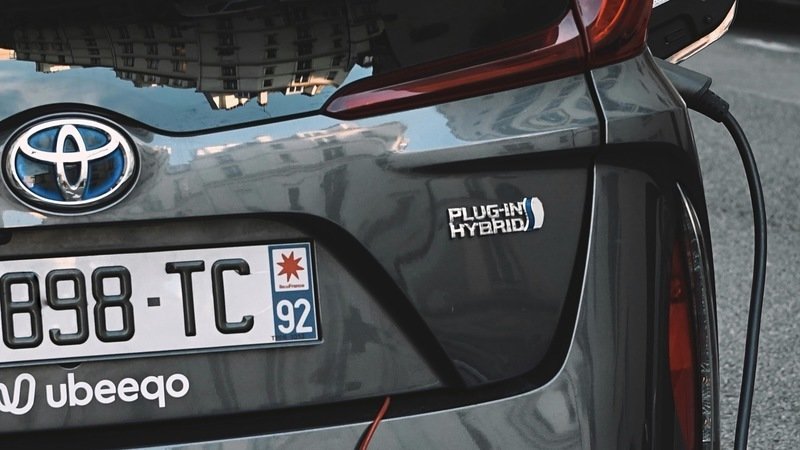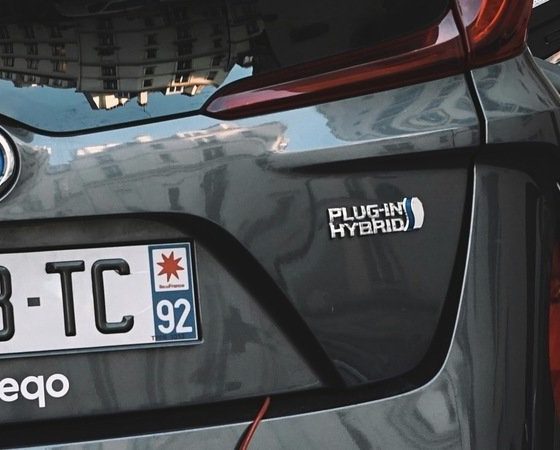

News
Inflation Reduction Act supports dealerships & fossil fueled “clean vehicles”
Today, the Senate passed the Inflation Reduction Act which seems like a good thing for EVs and clean energy at first. However, a look at the bill itself takes us into a rabbit hole that smells of fossil fuels and dealership lobbying.
By changing the very definition of electric vehicles of clean vehicles, the Inflation Reduction Act is showing its support for fossil fuels. Let’s take a look at a thread shared by @WholeMarsBlog who took a deep dive into the Inflation Reduction Act.
How Dealerships benefit from the Inflation Reduction Act
As @WholeMarsBlog pointed out in his thread, the Inflation Reduction Act will allow dealerships to benefit from a subsidy. If a consumer purchases an EV from a dealership, they will be able to transfer that tax credit to a dealership.
This will be the only way they can benefit from that tax credit as direct-to-consumer doesn’t qualify.
This gives dealerships an edge over direct-to-consumer sales by allowing consumers to receive a lower monthly payment than ordering directly from a manufacturer such as Tesla or Rivian.
However, it doesn’t make sense to subsidize an industry that is known for dishonest tactics and treating American consumers badly.
Allowing fossil-fueled vehicles to be “clean vehicles”
A vehicle with an internal combustion engine and a small battery is now considered a “clean vehicle” by this bill. Plug-in hybrid EVs have been touted as a cleaner version of the ICE vehicle because it has a battery and can be charged.
However, these are still fossil-fueled powered vehicles and discourage the sales of actual clean vehicles. As @WholeMarsBlog said, “Why buy an F-150 Lightning when an F-150 hybrid qualifies, too?” He also pointed out that hydrogen cars are also now subsidized.
Battery Minerals need to be sourced domestically
This is done in a very tricky way to make it look like the EV tax credit is being extended, but in reality fossil fuel powered hybrids will qualify while electric vehicles will not.
this is so wrong. if people don't plug in these cars they generate MORE emissions due to weight
— Whole Mars Catalog (@WholeMarsBlog) August 7, 2022
Rivian and Lucid along with other automakers will lose their $7,500 tax credit next year due to these battery sourcing requirements making it impossible for any full EV to qualify.
This is why it’s so important for automakers to partner with their domestic suppliers. Talon Metals’ Chief External Affairs Officer & Head of Climate Strategy, Todd Malan spoke with me at length on this topic and you read his thoughts here.
Benchmark Minerals’ take on the Inflation Reduction Act
Interesting commentary on the Inflation Reduction Act from @sdmoores https://t.co/Ma5fFElNjv pic.twitter.com/ePZMHVSX5a
— The Limiting Factor (@LimitingThe) August 7, 2022
Benchmark Minerals published an article on what the Inflation Reduction act means for the EV battery supply chain and I think it’s important to consider some of the points they’ve made.
Simon Mores, CEO of Benchmark said that it’s almost impossible that any of the Fair Trade Alliance countries are able to fill China’s raw material gap for our EV demand between now and 2024.
“The presently proposed $7,500 credit for those EVs that do not contain any critical minerals from China or Russia will effectively be made redundant, considering the proposal ends in 2024 just when a domestic supply chain is beginning to gain momentum.”
“It is almost impossible that any Fair Trade Alliance countries – of which Australia and Chile are the stand out – could fill China’s raw material gap for the USA’s EV demand between now and 2024.”
“This is considering the basic lack of raw material supply in many markets and the fact that most future raw material has already been contracted and accounted for.”
“If the US wants the incentive to really work, it needs to extend this by 4 years to 2028 so the battery supply chain builds into the incentive.”
With this thought in mind, @WholeMarsBlog pointed out that smaller batteries could meet the percentage requirements while larger batteries powering the entire vehicle can not. In other words, this opens the door for plug-in hybrid EVs to meet the rising demand for clean vehicles.
My 2.5¢
I think it’s important to note these flaws in the bill, but I also think that we do need a stronger U.S. battery supply chain. However, we shouldn’t sacrifice EVs for fossil fuels to get that stronger supply chain.
I’ve always thought that it was silly to include plug-in hybrid vehicles as a “clean vehciel” when they use both batteries and fossil fuels. Hybrids are great for those who want both options. I’ve also heard the arguments that they are more affordable than a Tesla, but it’s 2022 and if someone is in the market for a new car, there are options for a variety of EVs.
I think @WholeMarsBlog made an excellent point. I think Todd Malan made excellent points as well. At the end of the day, however, politricksters will politrick. The fact that they all agreed on this bill is, I think, kind of shocking.
Disclaimer: Johnna is long Tesla.
I’d love to hear from you! If you have any comments, concerns, or see a typo, you can email me at johnna@teslarati.com. You can also reach me on Twitter @JohnnaCrider1

Cybertruck
Tesla drops latest hint that new Cybertruck trim is selling like hotcakes
According to Tesla’s Online Design Studio, the new All-Wheel-Drive Cybertruck will now be delivered in April 2027. Earlier orders are still slated for early this Summer, but orders from here on forward are now officially pushed into next year:

Tesla’s new Cybertruck offering has had its delivery date pushed back once again. This is now the second time, and deliveries for the newest orders are now pushed well into 2027.
According to Tesla’s Online Design Studio, the new All-Wheel-Drive Cybertruck will now be delivered in April 2027. Earlier orders are still slated for early this Summer, but orders from here on forward are now officially pushed into next year:
🚨 Tesla has updated the $59,990 Cybertruck Dual Motor AWD’s estimated delivery date to April 2027.
First deliveries are still slated for June, but if you order it now, you’ll be waiting over a year.
Demand appears to be off the charts for the new Cybertruck and consumers are… pic.twitter.com/raDCCeC0zP
— TESLARATI (@Teslarati) February 26, 2026
Just three days ago, the initial delivery date of June 2026 was pushed back to early Fall, and now, that date has officially moved to April 2027.
The fact that Tesla has had to push back deliveries once again proves one of two things: either Tesla has slow production plans for the new Cybertruck trim, or demand is off the charts.
Judging by how Tesla is already planning to raise the price based on demand in just a few days, it seems like the company knows it is giving a tremendous deal on this spec of Cybertruck, and units are moving quickly.
That points more toward demand and not necessarily to slower production plans, but it is not confirmed.
Tesla Cybertruck’s newest trim will undergo massive change in ten days, Musk says
Tesla is set to hike the price on March 1, so tomorrow will be the final day to grab the new Cybertruck trim for just $59,990.
It features:
- Dual Motor AWD w/ est. 325 mi of range
- Powered tonneau cover
- Bed outlets (2x 120V + 1x 240V) & Powershare capability
- Coil springs w/ adaptive damping
- Heated first-row seats w/ textile material that is easy to clean
- Steer-by-wire & Four Wheel Steering
- 6’ x 4’ composite bed
- Towing capacity of up to 7,500 lbs
- Powered frunk
Interestingly, the price offering is fairly close to what Tesla unveiled back in late 2019.
Elon Musk
Elon Musk outlines plan for first Starship tower catch attempt
Musk confirmed that Starship V3 Ship 1 (SN1) is headed for ground tests and expressed strong confidence in the updated vehicle design.

Elon Musk has clarified when SpaceX will first attempt to catch Starship’s upper stage with its launch tower. The CEO’s update provides the clearest teaser yet for the spacecraft’s recovery roadmap.
Musk shared the details in recent posts on X. In his initial post, Musk confirmed that Starship V3 Ship 1 (SN1) is headed for ground tests and expressed strong confidence in the updated vehicle design.
“Starship V3 SN1 headed for ground tests. I am highly confident that the V3 design will achieve full reusability,” Musk wrote.
In a follow-up post, Musk addressed when SpaceX would attempt to catch the upper stage using the launch tower’s robotic arms.
“Should note that SpaceX will only try to catch the ship with the tower after two perfect soft landings in the ocean. The risk of the ship breaking up over land needs to be very low,” Musk clarified.
His remarks suggest that SpaceX is deliberately reducing risk before attempting a tower catch of Starship’s upper stage. Such a milestone would mark a major step towards the full reuse of the Starship system.
SpaceX is currently targeting the first Starship V3 flight of 2026 this coming March. The spacecraft’s V3 iteration is widely viewed as a key milestone in SpaceX’s long-term strategy to make Starship fully reusable.
Starship V3 features a number of key upgrades over its previous iterations. The vehicle is equipped with SpaceX’s Raptor V3 engines, which are designed to deliver significantly higher thrust than earlier versions while reducing cost and weight.
The V3 design is also expected to be optimized for manufacturability, a critical step if SpaceX intends to scale the spacecraft’s production toward frequent launches for Starlink, lunar missions, and eventually Mars.
News
Tesla FSD (Supervised) could be approved in the Netherlands next month: Musk
Musk shared the update during a recent interview at Giga Berlin.

Tesla CEO Elon Musk shared that Full Self-Driving (FSD) could receive regulatory approval in the Netherlands as soon as March 20, potentially marking a major step forward for Tesla’s advanced driver-assistance rollout in Europe.
Musk shared the update during a recent interview at Giga Berlin, noting that the date was provided by local authorities.
“Tesla has the most advanced real-world AI, and hopefully, it will be approved soon in Europe. We’re told by the authorities that March 20th, it’ll be approved in the Netherlands,’ what I was told,” Musk stated.
“Hopefully, that date remains the same. But I think people in Europe are going to be pretty blown away by how good the Tesla car AI is in being able to drive.”
Tesla’s FSD system relies on vision-based neural networks trained on real-world driving data, allowing vehicles to navigate using cameras and AI rather than traditional sensor-heavy solutions.
The performance of FSD Supervised has so far been impressive. As per Tesla’s safety report, Full Self-Driving Supervised has already traveled 8.3 billion miles. So far, vehicles operating with FSD Supervised engaged recorded one major collision every 5,300,676 miles.
In comparison, Teslas driven manually with Active Safety systems recorded one major collision every 2,175,763 miles, while Teslas driven manually without Active Safety recorded one major collision every 855,132 miles. The U.S. average during the same period was one major collision every 660,164 miles.
If approval is granted on March 20, the Netherlands could become the first European market to greenlight Tesla’s latest supervised FSD (Supervised) software under updated regulatory frameworks. Tesla has been working to secure expanded FSD access across Europe, where regulatory standards differ significantly from those in the United States. Approval in the Netherlands would likely serve as a foundation for broader EU adoption, though additional country-level clearances may still be required.








